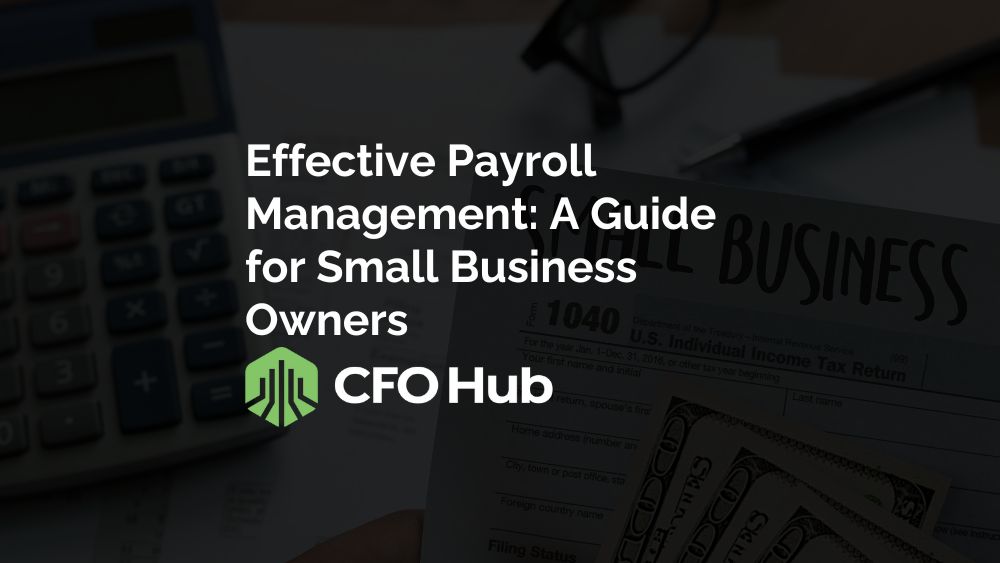Handling payroll can be challenging for a small business owner, as you need to pay your employees right and on time. Moreover, you have tax rules and labor laws to follow, which is easier said than done.
Effective payroll management requires more than simply calculating wages; it entails understanding all facets from tracking hours worked, withholding taxes accordingly, and meeting legal obligations.
In this article, we offer essential strategies designed to streamline payroll administration while sidestepping common pitfalls, helping small business owners deal with payroll efficiently and effectively.
Understanding Payroll Basics
The path to good payroll management starts with understanding the basics. Payroll includes all payments a company owes its workers, including wages, bonuses, and deductions such as taxes or retirement funds. Small business owners need to understand these payroll rules to manage them well.
Payroll rules include gross wages (total pay before cuts), net wages (pay after cuts), and payroll taxes (both the employer’s share and what’s taken from employees’ pay).
You also need to keep track of work hours, handle extra work pay and benefits like health care, and keep clear records of payments. Managing these key parts well is the base of a smooth system.
Investing in Robust Payroll Software
Small businesses looking for effective payroll management should invest in robust payroll software solutions. Payroll software automates many tedious payroll management tasks such as calculating wages, taxes, and deductions. As tax laws often change, it’s challenging for small business owners to remain current manually, so this software decreases the risks of unintentional tax fraud.
Payroll software can significantly decrease errors, saving both time and energy that would otherwise be spent double-checking calculations. Furthermore, features like direct deposit make the payment process simpler for both employers and employees. Many payroll platforms integrate with accounting or time-tracking software, which makes the process of keeping all financial records up-to-date easier than ever.
Payroll software might seem like an unnecessary extra expense, but its investment will quickly pay for itself in terms of increased accuracy, efficiency, and peace of mind. A reliable system in place can lower risk exposure from mistakes made through payroll mismanagement, resulting in costly fines.
Outsource Virtual Assistants for Payroll Management
Virtual assistants play an invaluable role in supporting small business owners’ payroll management, taking on essential administrative duties like entering employee data, tracking work hours accurately, and overseeing tax filings. By taking on these routine administrative responsibilities for them directly, virtual assistants not only streamline payroll but also significantly decrease errors that arise with manual payroll administration, while simultaneously making employee payments on time and building satisfaction and trust among staff members.
Outsourcing payroll-related responsibilities to virtual assistants enables small businesses to improve operational efficiencies without needing to hire and employ full-time payroll teams in-house. Flexible solutions may prove particularly valuable for businesses experiencing seasonal variations, or those in the early stages of expansion.
Apart from helping business owners with payroll, virtual assistants provide excellent customer service to clients. They can handle inquiries, resolve issues, and ensure timely responses, allowing business owners to focus on growth and strategic decision-making. With virtual assistants managing customer communications, businesses can maintain a professional image and foster positive relationships with their clients.
Ensuring Compliance with Tax and Labor Laws
As a small business owner, you must stay current on relevant federal, state, and local regulations concerning taxes, as well as labor issues such as minimum wage rates, overtime requirements, and employee classification laws. Some countries are more tax-friendly than others. For instance, income tax is generally lower in the UK but the Australian system includes a considerably lesser Medicare tax compared to the UK’s National Insurance. However, being in line with tax regulations is a must in every country. The IRS in the US, for example, places stringent requirements on businesses regarding withholding and paying payroll taxes.
You should also consider labor laws. Misclassifying employees as independent contractors, failing to pay overtime wages, and not meeting minimum wage requirements could lead to expensive lawsuits. To protect yourself against this scenario it’s vital that clear policies are put in place and regular audits conducted of payroll practices to make sure that they comply with legal requirements.
Streamlining Payroll with Direct Deposit and Automated Systems
Using direct deposit and automated systems can help make payroll easier. Direct deposit is popular because it allows pay to be securely and quickly deposited directly into employees’ bank accounts. It reduces the chances of lost or stolen checks, making things smoother for businesses and their employees.
Automating payroll with direct deposit ensures employees receive their pay on time regardless of holidays or delays in traditional methods, and provides clear documentation that helps recordkeeping and compliance efforts. Many payroll software platforms now include direct deposit as an easy option within their systems.
Automating other aspects of payroll management such as tax calculations, benefits administration, and reporting can further streamline this process. By cutting out manual tasks involved with payroll administration you free up more time for growth while decreasing errors.
Bottom Line
Managing payroll well helps small business owners make sure workers are paid right, on time, and by the law. By using these tips, small business owners can cut payroll mistakes, save time, and keep the business running smoothly. Remember, payroll doesn’t have to be hard or take too much time; with the right tools, it can be easy and help the business do well overall.
Mark is an accounting and finance professional with over a decade of experience in public accounting and consulting. As both an accountant and entrepreneur, he is passionate about helping clients strategically organize and grow their businesses to reach their goals.
Visit Mark's Expert Hub to learn more about his experience and read more of his editorial content

